Daily Vocabulary Words: List of Daily Used Words in Leading International Newspapers
Hi there. Welcome to this special section @ Wordpandit.
Our endeavour here is very simple: to highlight important daily vocabulary words, which you would come across in leading newspapers in the country. We have included the following newspapers in our selection:
• The New York Times
• The Washington Post
• Scientific American
• BBC
• The Guardian
• Psychology Today
• Wall Street Journal
• The Economist
We are putting in extensive work for developing your vocabulary. All you have got to do is be regular with this section and check out this post on a daily basis. This is your repository of words that are commonly used and essentially, we are posting a list of daily used words. Hence, this has significant practical application as it teaches you words that are used commonly in leading publications mentioned above.
Visit the website daily to learn words from leading international newspapers.
WORD-1: Unprecedented
CONTEXT: Daniel Noboa, innovated last week with the unprecedented declaration of a state of “internal armed conflict”.
SOURCE: Guardian
Explanatory Paragraph: Imagine you’re doing something no one has ever done before, like building a castle on the moon. This is something new and never seen before. That’s what “unprecedented” means – it’s when something happens that has never happened in the past. It’s like a brand-new, never-seen-before adventure or event.
Meaning: Referring to something that has never been done or experienced before (adjective).
Pronunciation: un-PRESS-eh-den-ted
Synonyms: Novel, Unique, Unheard-of, Groundbreaking, Revolutionary, Unparalleled
Usage Examples:
1. The astronaut’s journey to Mars was unprecedented in human history.
2. The company’s success in the new market was unprecedented.
3. She achieved unprecedented scores in the examination.
4. The invention of the smartphone was an unprecedented development.
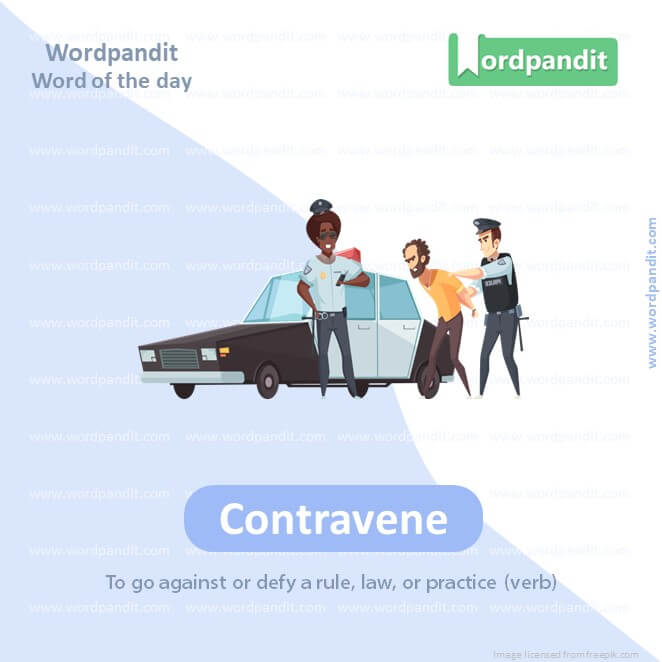
WORD-2: Contravene
CONTEXT: By applying the laws of war to organised criminals as if they were terrorists or insurgents, the move may contravene international law, Human Rights Watch’s deputy Americas director, Juan Pappier, told the Washington Post.
SOURCE: Guardian
Explanatory Paragraph: Think of a rule at school, like ‘no running in the hallways.’ If you run in the hallway, you are breaking the rule. “Contravene” means to do something that is not allowed or to break a rule.
Meaning: To go against or defy a rule, law, or practice (verb).
Pronunciation: kon-truh-VEEN
Synonyms: Violate, Infringe, Breach, Disobey, Defy, Transgress
Usage Examples:
1. She was fined for contravening the traffic laws.
2. The company’s policies contravene the new government regulations.
3. By not wearing his seatbelt, he contravened the safety rules.
4. The decision of the court contravenes established legal principles.
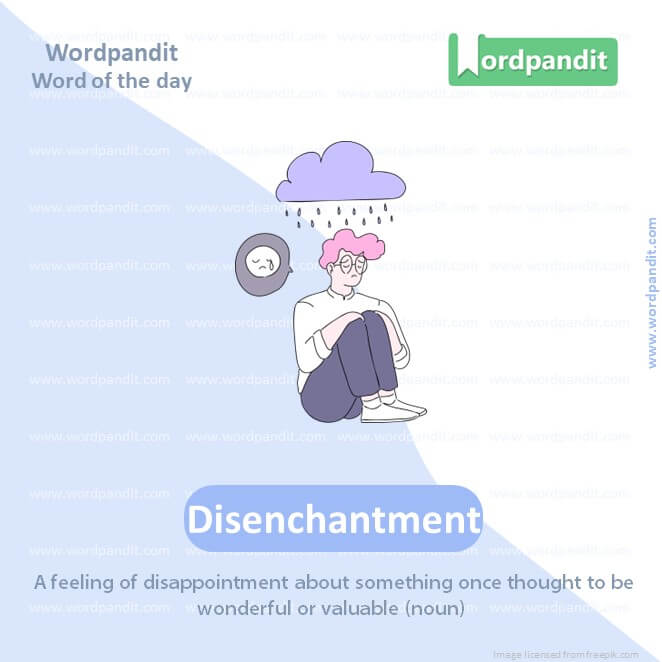
WORD-3: Disenchantment
CONTEXT: Burgeoning security issues are a significant factor in Latin America’s growing disenchantment with democracy.
SOURCE: Guardian
Explanatory Paragraph: Have you ever been really excited about a new toy, but then when you got it, it wasn’t as fun as you thought? That feeling of not being excited anymore is called “disenchantment.” It’s when something you thought would be great turns out to be not so great.
Meaning: A feeling of disappointment about something once thought to be wonderful or valuable (noun).
Pronunciation: dis-en-CHANT-ment
Synonyms: Disillusionment, Disappointment, Dissatisfaction, Cynicism, Discontent, Disaffection
Usage Examples:
1. After seeing the reality of movie making, her disenchantment with the film industry grew.
2. The voters’ disenchantment with the government led to low turnout at the polls.
3. His disenchantment with his job made him consider a career change.
4. The young athlete’s disenchantment with the sport was evident in his performance.
WORD-4: Emulate
CONTEXT: Bukele’s approach has generated a lot of discussion and interest, but no country has moved to actually emulate the method.
SOURCE: Guardian
Explanatory Paragraph: Imagine you have a big brother or sister who is really good at soccer. You want to be just as good, so you try to do things just like they do. That’s “emulate” – trying to be like someone else because you think they’re really good or special.
Meaning: To try to equal or surpass someone, typically by imitation (verb).
Pronunciation: EM-yoo-late
Synonyms: Imitate, Copy, Mirror, Follow, Mimic, Replicate
Usage Examples:
1. She tried to emulate her teacher’s success.
2. Young athletes often emulate their sports heroes.
3. The startup hoped to emulate the business model of successful companies.
4. He admired his father and always sought to emulate his kindness and generosity.
WORD-5: Periphery
CONTEXT: Human rights have been pushed to the periphery of the conversation.
SOURCE: Guardian
Explanatory Paragraph: Think of a big circle, like a pizza. The very edge of the pizza, not the middle part, is the “periphery.” It’s the part that’s all around the outside. So, when we talk about something being on the periphery, we mean it’s on the outside or edge of something, not in the center.
Meaning: The outer limits or edge of an area or object (noun).
Pronunciation: puh-RIF-uh-ree
Synonyms: Edge, Border, Margin, Fringe, Outskirts, Boundary
Usage Examples:
1. The small village is located on the periphery of the city.
2. He noticed a strange figure standing at the periphery of his vision.
3. The periphery of the forest was dense with underbrush.
4. They lived on the periphery of society, not fully part of the mainstream.
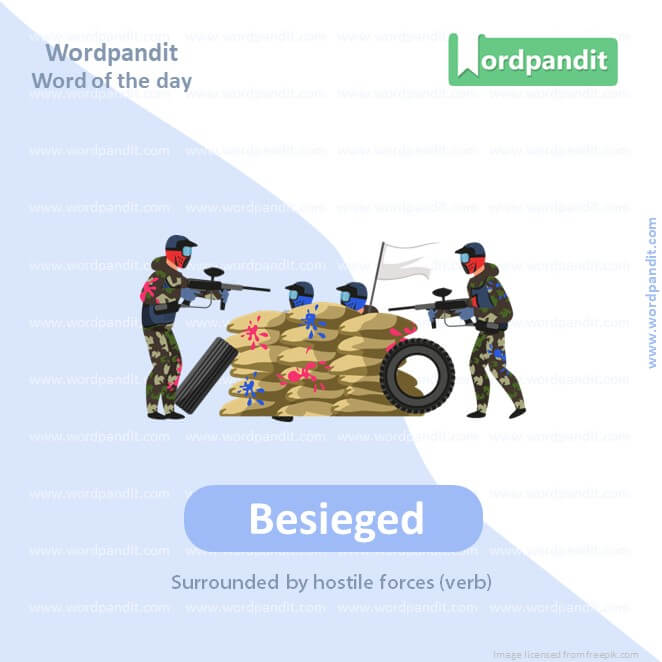
WORD-6: Besieged
CONTEXT: It is understandable that human rights are an intangible concern for people besieged by criminal groups.
SOURCE: Guardian
Explanatory Paragraph: Imagine your fort is surrounded by a bunch of friends who won’t let you out. They are all around, and you can’t get past them. This is like being “besieged.” It’s when something or someone is completely surrounded by others, usually in a challenging or demanding way.
Meaning: Surrounded by hostile forces (verb).
Pronunciation: bih-SEEJD
Synonyms: Encircled, Surrounded, Hemmed in, Under attack, Assailed, Overwhelmed
Usage Examples:
1. The castle was besieged for weeks.
2. Reporters besieged the celebrity for comments.
3. The city was besieged by the enemy troops during the war.
4. He felt besieged by the constant demands of his job.
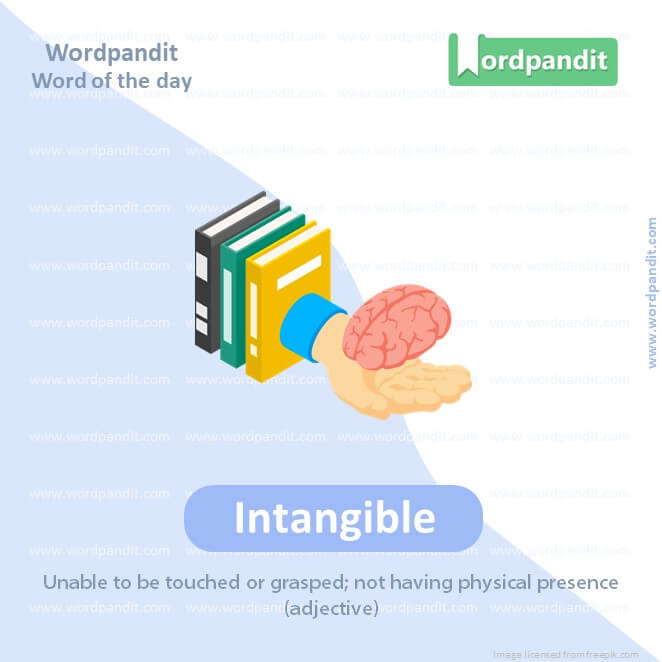
WORD-7: Intangible
CONTEXT: It is understandable that human rights are an intangible concern for people besieged by criminal groups.
SOURCE: Guardian
Explanatory Paragraph: Think about things you can’t touch, like a rainbow or the wind. You can see them or feel them, but you can’t hold them in your hand. “Intangible” means something that can’t be touched because it’s not a physical thing, but you can know it’s there in other ways.
Meaning: Unable to be touched or grasped; not having physical presence (adjective).
Pronunciation: in-TAN-juh-bul
Synonyms: Impalpable, Ethereal, Abstract, Incorporeal, Elusive, Non-physical
Usage Examples:
1. Love is an intangible feeling.
2. The beauty of the sunset was an intangible experience.
3. They were dealing with the intangible aspects of culture.
4. His influence on the team is intangible but significant.
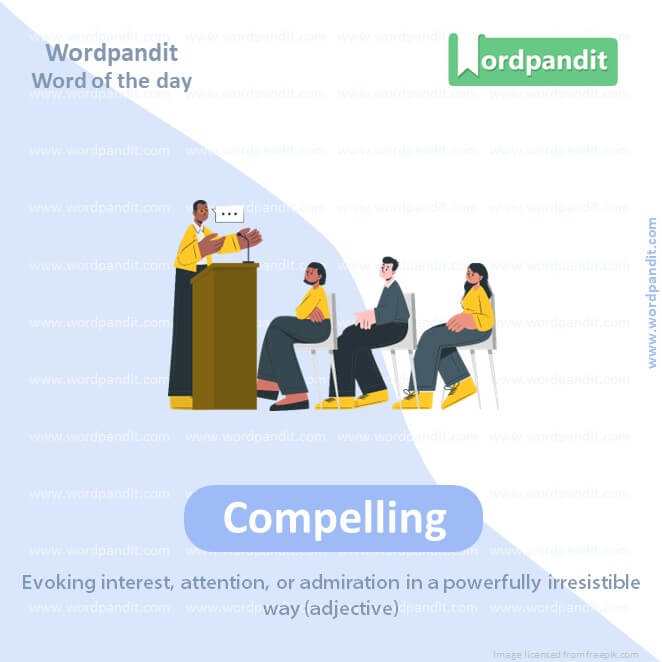
WORD-8: Compelling
CONTEXT: If you are likely to be killed by a stray bullet, or kidnapped by a criminal group, due process is not compelling.
SOURCE: Guardian
Explanatory Paragraph: Think of your favorite story or movie that’s so interesting and exciting that you can’t stop watching or listening. That’s what “compelling” means. It’s something that grabs your attention and makes you want to know more.
Meaning: Evoking interest, attention, or admiration in a powerfully irresistible way (adjective).
Pronunciation: kuhm-PELL-ing
Synonyms: Fascinating, Captivating, Engrossing, Enticing, Persuasive, Intriguing
Usage Examples:
1. The documentary presented a compelling argument for climate change.
2. She had a compelling reason to miss the meeting.
3. The novel was so compelling that he read it in one sitting.
4. His compelling personality made him popular among his peers.
WORD-9: Condemnation
CONTEXT: condemnation of the violence from human rights organisations, the United Nations and even the pope has yet to translate into meaningful action from political leaders.
SOURCE: Guardian
Explanatory Paragraph: Imagine someone did something really wrong, like breaking a window on purpose. When everyone says that person did a bad thing and shouldn’t have done it, that’s “condemnation.” It’s like a strong way of saying that something is very bad or wrong.
Meaning: The expression of very strong disapproval (noun).
Pronunciation: kon-duh-m-NAY-shun
Synonyms: Censure, Criticism, Denunciation, Disapproval, Reproach, Rebuke
Usage Examples:
1. The politician faced widespread condemnation for his actions.
2. The environmental group issued a condemnation of the new policy.
3. Her actions received condemnation from all sides.
4. The book sparked both interest and condemnation in the academic community.
WORD-10 Indulgent
CONTEXT. an indulgent modern preoccupation of “leftists and academics”.
SOURCE: Guardian
Explanatory Paragraph: Think about a time when your parents let you have an extra scoop of ice cream or stay up late to watch a movie. They were being “indulgent,” which means they were being extra nice and letting you have or do something special, often more than usual.
Meaning: Showing a readiness to be generous or lenient, especially more than is usual or necessary (adjective).
Pronunciation: in-DUL-junt
Synonyms: Lenient, Permissive, Tolerant, Generous, Forbearing, Easy-going
Usage Examples:
1. Her grandparents were indulgent and spoiled her with gifts.
2. He was indulgent towards his students, often giving them extra time for assignments.
3. The indulgent policy allowed employees more flexibility.
4. She was known for her indulgent attitude toward her pets, treating them like royalty.
Vocabulary Words in English
In the kaleidoscopic world of language, the thread of ‘vocabulary words in English’ weaves a rich tapestry. These words, the building blocks of communication, lend themselves to the eloquence and effectiveness of our speech and writing. Despite their significance, mastering ‘vocabulary words in English’ can sometimes be daunting, but with strategic approach, the process can be greatly simplified.
Learning ‘vocabulary words in English’ goes far beyond rote memorization. It requires an integrated approach that encompasses understanding and using the words. Consuming a diverse range of English materials such as novels, news articles, movies, music, and online content can acquaint you with words in actual use, helping you perceive both their meaning and usage in different contexts.
Furthermore, incorporating memory-enhancing techniques can add impactful strides to your journey of mastering ‘vocabulary words in English’. Methods such as the Leitner System or flashcards can bolster the memory retention of these words. Meanwhile, using mnemonic devices, associating words with unique stories or images, can help in retaining the ‘vocabulary words in English’ in long-term memory.
Another key to deciphering ‘vocabulary words in English’ is by practicing them in real-world contexts. Incorporate the new words into your daily conversations, written emails, or social media posts. Not only will this reinforce the meanings and applications, but also boost your confidence in using them.
In essence, understanding ‘vocabulary words in English’ is a continual journey that calls for persistent commitment, diverse learning approach, and ample practice. As you indulge in this exploration, you will find your command over the ‘vocabulary words in English’ becoming stronger, leading to more confident and dynamic communication. Remember – in the world of language, words are your faithful companions, and the more you engage with them, the more they’ll reveal their richness to you.











